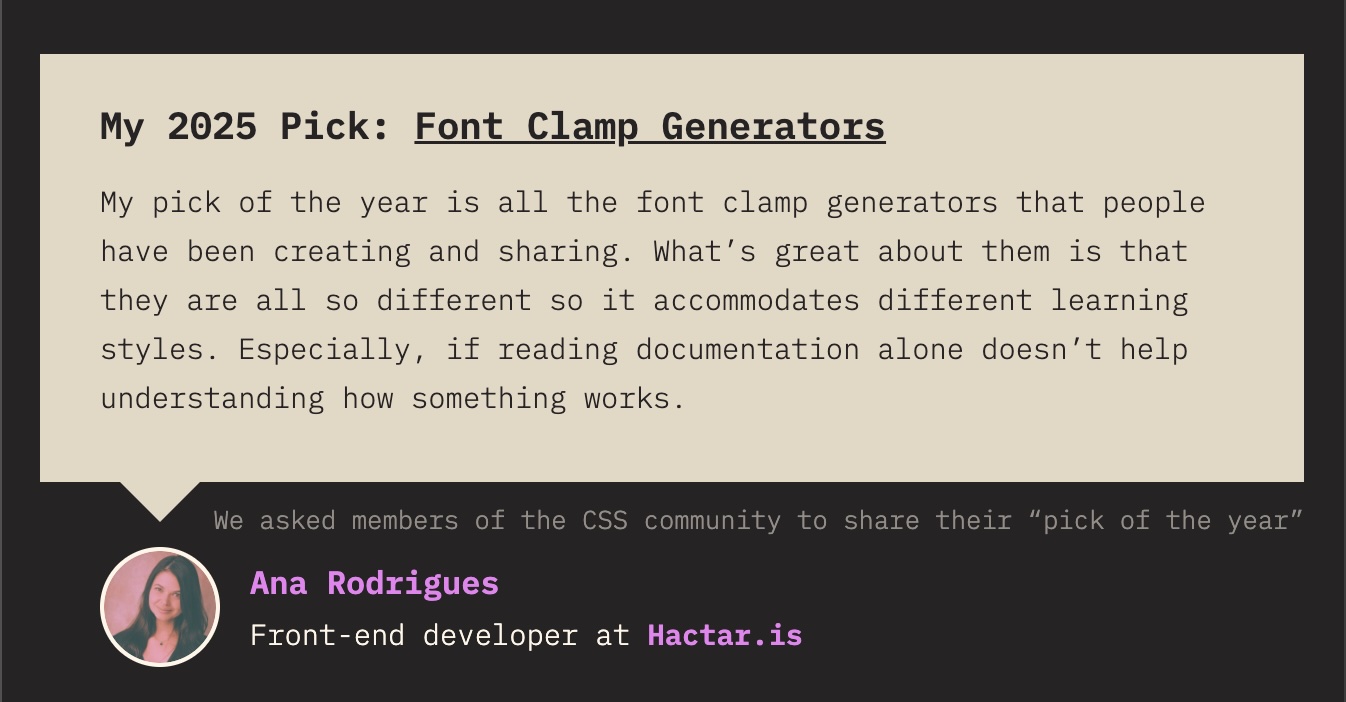Reading List
The most recent articles from a list of feeds I subscribe to.
2025 was the year of no sleep and pushing through
The last time I wrote a year in review was in 2019. I ended it with “have a healthy 2020” and we all know how that went. Since it does feel like we’ve been living in hell since 2020 I somehow stopped writing yearly reviews. But I have been itching to capture more of my life and I did have an okay 2025 so here it is.
The struggle is, I am a glass half empty person. I’d hate to sound like I am always moaning and complaining but with the current state of the world, I just can’t justify, nor do I feel content, excited or feel allowed to feel joy. It’s disheartening to feel this hopeless. I don’t want to gaslight myself but I can’t drown myself either. I’m struggling to find a balance.
No sleep
Note: the following section will describe a medical emergency involving a child
Expand
In December 2024, I did my usual routine before going to bed by checking my daughter in her bed. It wasn’t late but I found her covered in sick on her side and not responding. The worst seconds of my life, I immediately assumed she had passed. My husband dialed 999 and the 17 minutes for their arrival were the longest 17 minutes of my life. During those 17 minutes she started to have a seizure that started by moving some of her limbs uncontrollably.
I am deeply ashamed of how I reacted because I panicked. I started to pack bags of clothes to take to the hospital while wailing and my husband was following the instructions from the 999 operator. I remember thinking “I’m not going to survive this”. The paramedics gave her an injection to slow down her body and get her out of the seizure state. But, by coincidence, she also had a possible rare complication with it which involved CPR.
Eventually, she was stable enough to be moved to the hospital and recovered. I don’t remember much. I mostly avoided remembering that night. I remember asking the doctor “what would have happened if I didn’t go to her room?” and the doctor replied “let’s not think about that”.
Coming home was hard. I much prefer a hospital setting where everything is being monitored. At this point we didn’t have a diagnosis of what happened yet but we had to stay alert. We moved the baby monitor to be as close to her as possible and I started to sleep with it next to my ear as loud as possible. I don’t know what I was hoping to hear to alert me. But I just struggled to sleep. In the follow-up appointments, the doctors expressed concern with my lack of sleep. How could I sleep?
After tests she was diagnosed with SeLEAS. Over two-thirds of seizures in SeLEAS begin during sleep.
This was the year I was the most physically and mentally exhausted outside the newborn phase. I didn’t tell a lot of people this happened as I just wanted to push through.
TLDR: I haven’t slept properly in over a year because I’ve kept trying to monitor my child’s sleep as they’ve been diagnosed with a type of epilepsy that mostly occurs in their sleep.
I spoke at conferences!
Thankfully I wrote about this already! But yes, I did go around and speak about refactoring and modernising CSS! Which was great yet very emotional for me. Sleeping abroad wasn’t easy and I constantly checked my phone and cameras to check on my daughter.
As if I wasn’t tired enough, I also got a few more side quests and I did two IndieWeb adjacent talks. A shorter version for MKGN and a longer version for LoopConf. Both about using your personal website as a personal online third space.
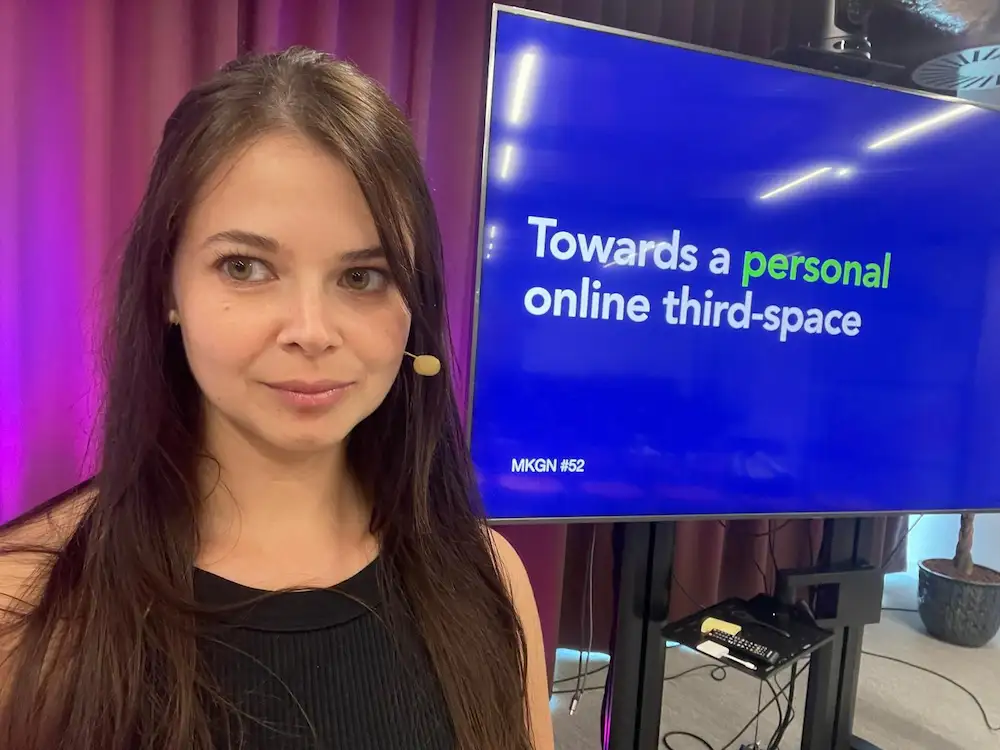
I think they landed well with people and even some blog posts came out of it which is the absolute dream!
I did enjoy doing these talks and every day I think of things to add to it. This is a topic I can speak from the heart and without slides. I don’t have any speaking plans and I am not planning on writing anything brand new for some time so if this topic is something you’re keen on hearing let me know.
Things I would like to do in 2026
I am attending a few lovely conferences and I have one engagement planned for the year too. But I would like to focus more on writing here, guest writing and playing with video format. Not necessarily to become a “content creator” (ergh) but because the advice to encourage blogging also applies to video content. I do have a degree in video and multimedia and I would like to put it to use.
A new home
If you’ve seen my CSS talk, you know this already. But yes, in late January we’ve moved into a new home and I’ve been the project manager, interior decorator and DIYer (where possible) of the whole place. I love doing things with my bare hands and being away from screens. And to be frank, space and time to not worry about the first topic of this blog post.

This year I am planning to get the bathroom re-done and the patio. I will leave the bathroom with the professionals though.
Still a fan
I always find it so funny when people who have known me for many years comment “you still like The Rasmus??” as if they would ask a man how come they still support the same football team they have since they were a child. Anyway, the band did a tour this year and I was able to go to the meet and greets and in it I explained how they were the inspiration for my karaoke talk that I did in 2022 and 2023. I asked them to sign the lanyard for All Day Hey! where my name shows (evidence!!) and it still had plenty of room for signatures. I didn’t cry but I was so overwhelmed and spoke too fast like a proper dork. It’s so much easier to speak to a crowd of hundreds of strangers!
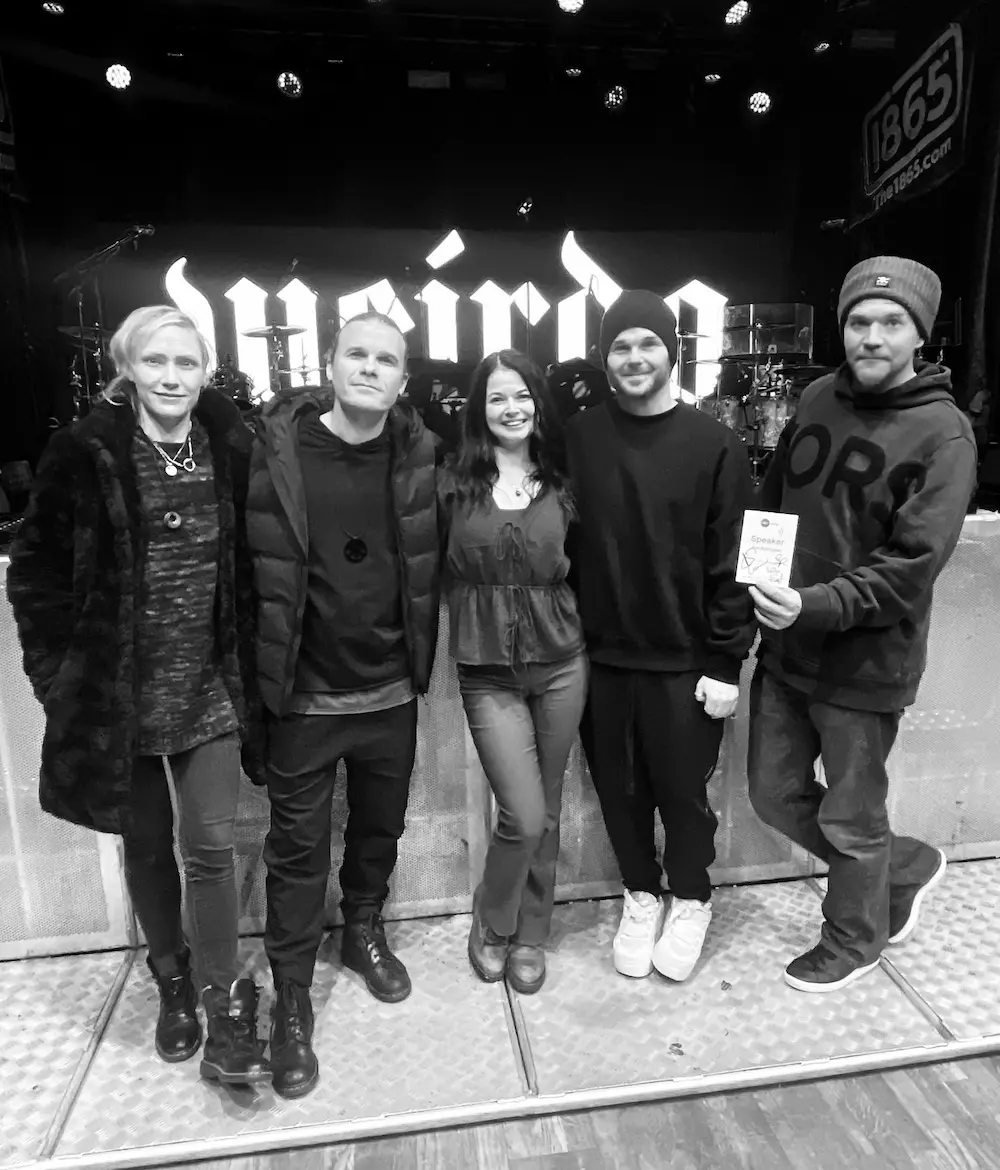
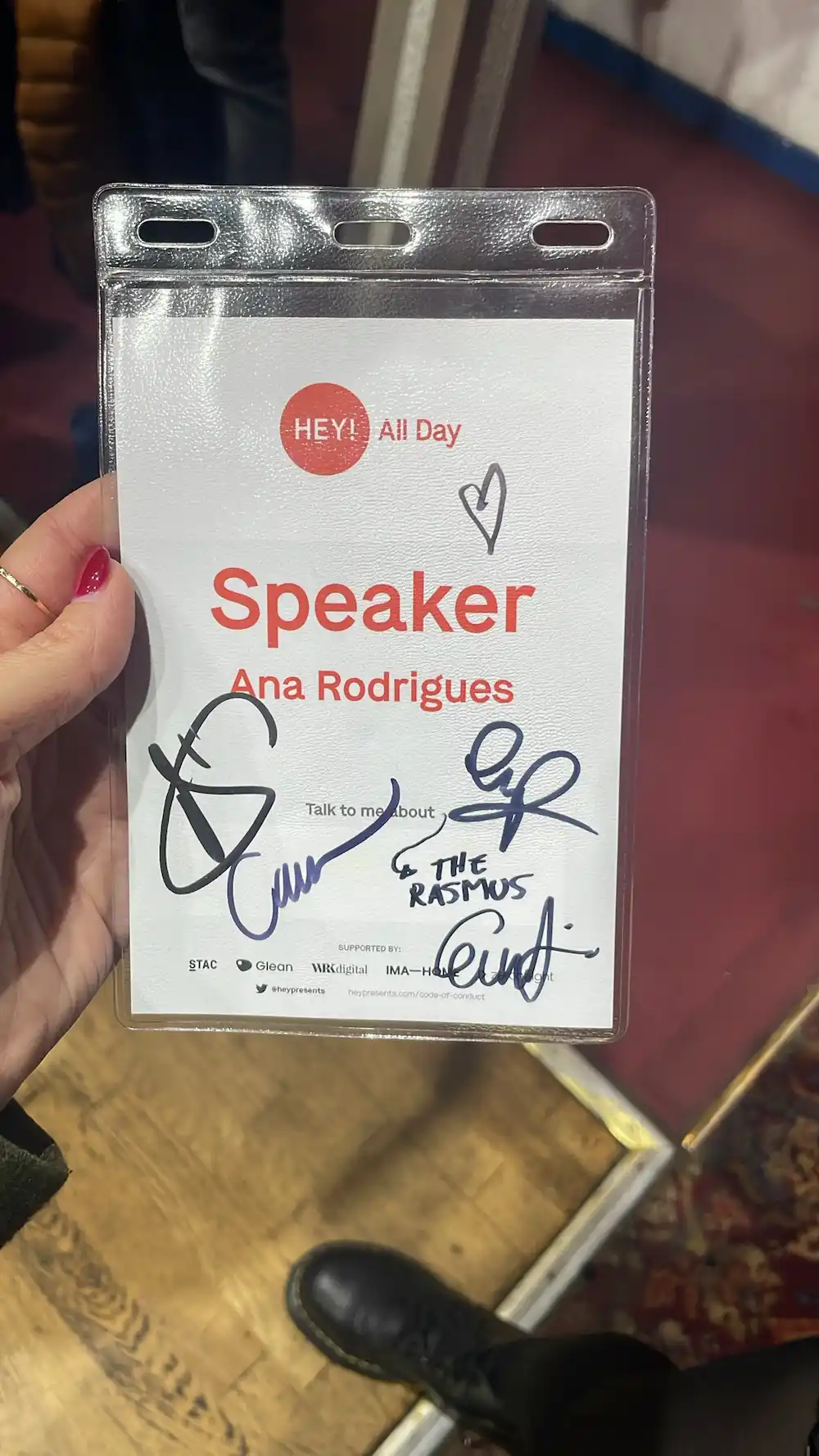
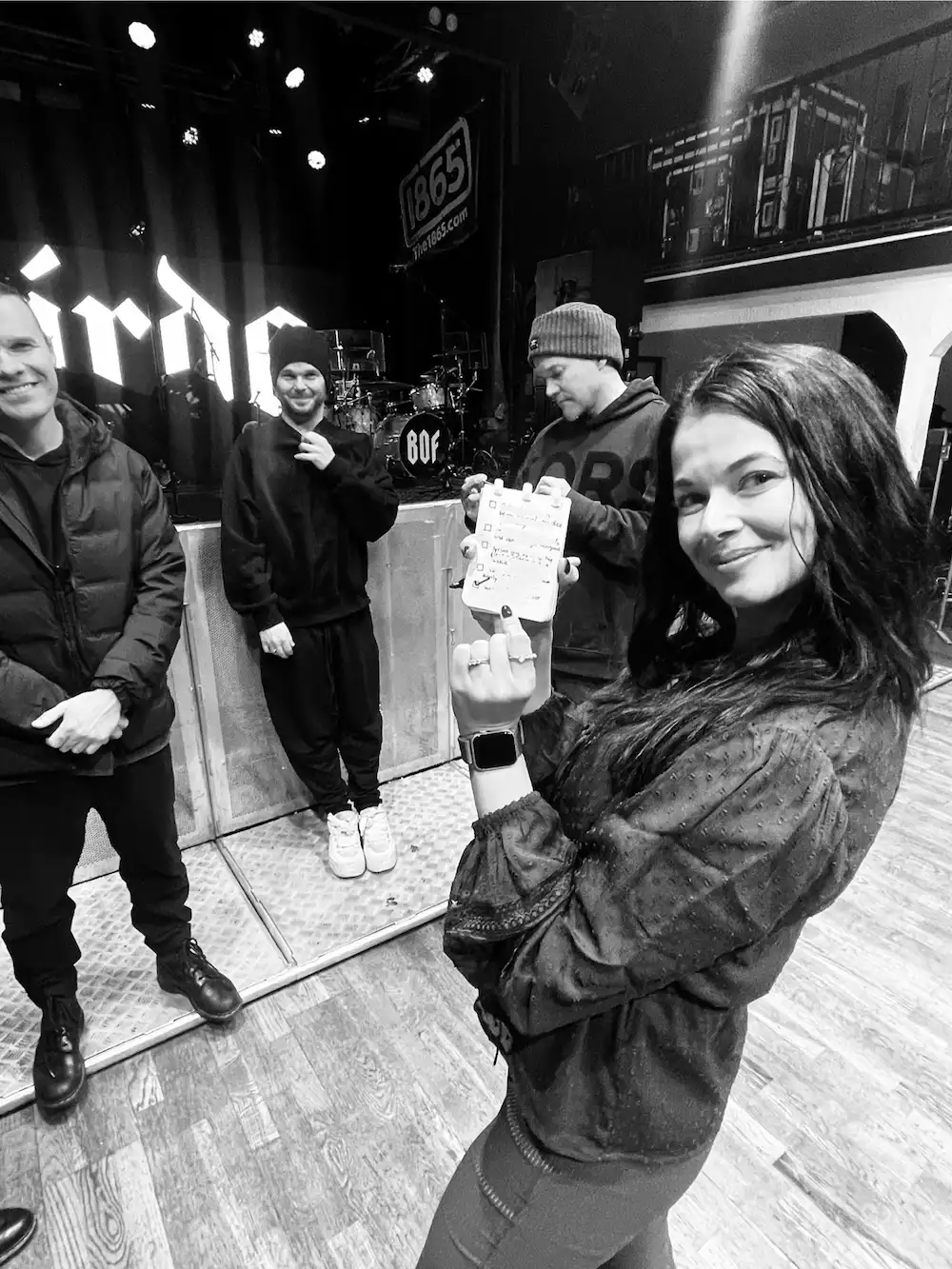
This was such a highlight for me as I was able to hang out with one of my oldest friends and make new ones.
Miscellaneous notes
I didn’t take enough leave this year and guess what? I felt like absolute shit towards the end of the year. That’s a mistake I won’t make in 2026 and I started my year by planning and booking some leave already.
I was gifted a zookeeper for a day experience and I loved it so much! I fed a rhino, giraffe and elephants (and more but these were the big boys)! Who can say that? (I also cleaned their poop)

I went to the gym at least once a week in 2025 and I know I moan a bit about my goals to the people close to me but I’m actually happy to have settled into a routine. My girl is quite a tall girl for her age and my goal in life is to be able to pick her up and be healthy and fit to be here for her. On the same topic I need to reduce my TikTok and Instagram usage as it is severely damaging how I view myself too.
I tried art classes, more crafts and even visits to museums and this is something I am planning to carry on and increase in 2026. I need to be even more away from screens however I want to find a balance to still engage with people and communities I care about.
For 2026 I just want to be happy, more grateful, content and safe. And I wish that to you too.
Talking around about CSS: The final act
I am back from Berlin after spending a few days last week at Beyond Tellerrand where I was a speaker! It was my first time attending as well. Before that, in September, I did the same talk in Freiburg at Smashing Conference.
In both events I gave the talk that I worked on the first half of this year about modernising and maintaining CSS. Now that this is all done, I want to write out all my feelings.
The origin of this talk
Everything I say on that talk is true:
This talk came to my head after returning to work following a year of maternity leave two years ago. That year away coincided with an explosion of new CSS features I’m still catching up on even now.
I was always wondering ”What was the latest approach? How do you build a hero nowadays? What about a card? What had the experts written while I was away?”. So I created this overwhelming pressure that I needed to prove that I “still had it” and that becoming a mother hadn’t somehow diminished my technical skills.
So my return to work became unexpectedly miserable. I was terrified of making mistakes or choosing suboptimal solutions. The blank canvas that once excited me now left me anxious and riddled with decision paralysis.
This is the origin story of this talk. But there was another thought that creeped in: I wanted to be seen as someone who is vaguely professional. I know, I know! I jest on my social media bios. I normally say that I work as a "unprofessional front end developer" but I do wish to feel like I belong. That the respect between me and my peers is mutual and that I am worth something.
Despite being someone who enjoys seeing everyone being their unapologetic self, every once in a while I look at my "unpolished" layout of my blog and feel a little bit insecure. Also, not so long ago, I gave a silly talk about creating an in-browser gamified karaoke where I embraced the cringe and sang to hundreds of people. I suddenly began to feel afraid that I could be typecasted as... too silly. It feels like others do "silly" better than me and I just didn't want to feel like the class clown.
This means that I was out of my comfort zone. I know I am good employee and that sometimes I write and share "serious" and useful things here too but still I had this quiet whisper in my brain saying "who the hell am I to say anything".
As I began the write the talk, I realised that I can't simply go around and say "do CSS like this" because that's not how CSS works. CSS simply works. There's multiple ways of achieving the same visual result and they are all right. So I had to lean in on real life struggles that end up not being code related at all.
So the fear and terror began to creep in... I wasn't sharing innovative and groundbreaking code that would make me look super smart!
I knew I had to tie it to a story - I am not a professional speaker and I don't have a catalog of experience. I've seen lots and lots of talks and I always enjoyed a side story, metaphor or comparison so I leaned into that and attached the story of the current stage of my life: a house renovation.
My innner critic was pulling extra shifts: "Oh dear... this is a bit personal..."
Then I thought: "It's missing some imagery - let me draw things in the only style I know".
"Oh no. Now it looks like my silly blog."
And I became a little bit anxious. Some days I was defending myself "Nope, this is me. It's okay to be me", other days I was lying awake staring at my bedroom ceiling because I was so afraid I would disappoint all the organisers and attendees.
At this point I had to create a rule. No self bad talk until this talk is finished. Detect the thought and drown it. Do the thing my therapist used to nag me about. Turns out it helps.
Eventually, the time to practise with friends came and the first run of it in public happened. And all was fine! The world didn't end!
The support act
When I did my "less serious karaoke talk" at conferences, I felt completely comfortable with it. I was comfortable with being the silly one in a line-up full of people I admire. It's almost like I said to myself "well, they are the smart ones, I am in my lane".
For this talk, every time a new speaker was announced, it was always someone who was incredible, respected and super smart and I always had a racing thought "oh no, who even am I to be there as well". Perhaps it was the famous imposter syndrome people talk about but to me it felt like I didn't belong. I've been attending meet-ups and conferences as a hobby for more than 10 years! It's weird seeing myself in those line-ups and believe that I belong there. It's like becoming a support act for a music festival that you've been attending since forever alongside the big names.
Living in the limbo
I don't know what other speakers do but I never feel like a talk is finished. There's always more clarification or more resources that be added. In fact, this photo from Florian at btconf captures exactly the feeling of limbo, fear and questioning myself and my slides just before I gave my talk.
 Photo by Florian Ziegler.
Photo by Florian Ziegler.
So even though I had my talk "finished" before June, I never felt like I could finally relax. To me, the shift only ended in November. I gave this talk 5 times and in all of them something always changed. Every day I scrolled through my feeds and keep an eye on things that I could improve on my talk. This is quite exhausting. I spent the first 6 months of this year working on it, then the other 5 months were spent sourcing for improvements.
Last Friday afternoon, I had this intense feeling of relief that was so obvious on my face that people commented on it!
What's next?
I don't know but I don't want to force anything. This is a side gig to me and an experience for myself as my current job doesn't require me to do talks. I mean, I always have a talk in my pocket about the IndieWeb if anyone is interested!
I'm sure that during this year I was a fucking pain in the arse to those close to me. I was so afraid and doubting myself that most times I couldn't believe the kind things people were telling me. I asked for reassurance a lot and, for that, I am sorry. I just really really wanted to do well. But I think it is time to fully embrace my silly self and just be that person - even if it is "unprofessional".
IndieWeb Book Club: Oct 2025
I've never participated in a book club so I don't know if I am doing this right. I don't know how the conversation would go in a group setting and I normally lean to sharing my experiences as a way to connect. I've recently learned it isn't something people are keen on. But since this is my personal blog I guess I get a pass.
Zachary Kai proposed the book The Creative Act by Rick Rubin and I was immediately drawn to it.
I managed to borrow the book from my local library and a few pages in I immediately regretted it! I wanted to highlight with pens, add bookmarks and notes to so many things! Right now, it isn't on my budget to buy (even) more books so I had to resort to taking photos of passages that I loved on my phone.
The Creative Act felt like a conversation with your most supportive friend. It is also what you would say back to someone who wanted some encouragement on following through practising their art. My inner critic wouldn't stand a chance against the lovely encouragement from the book and I love how I stumbled upon this challenge just when I quit attending my art classes.
I've been struggling with not having the skills to put into a canvas the things I see in my head and I've been feeling silly and discouraged.
Many tips and encouraging words also apply to things outside art - even feelings I have about this blog and my recent adventures on doing live tech talks. The constant revisit of materials, the feeling of imperfection and incompletion and fear.
The goal of art isn't to attain perfection. The goal is to share who we are. And how we see the world.
Thank you for the initiative Zachary!
“Why would anybody start a website?”
Slowly catching up on my RSS feed and I just read Dave's post “Why would anybody start a website?”. Obviously, Dave's post is right up my street but it reminded me of a random notes post on my phone that I wrote a while back.
Why build a website?
Why knit a jumper with your bare hands?
Why cook a homemade meal from scratch?
Why paint in a canvas?
Why fix a broken thing?
Why write a letter?
Why anything really?
We, humans, are driven to touch and craft with our body. Deep down we crave that. Website making is a digital craft.
There, I let out a draft from my phone and it is now in my blog. Why not?
Anyway, I love how the "no thought is original" is real. Turns out, one day before I started this draft on my blog, Jim Nielsen also did a similar comparison. They're smarter than me, listen to them!
Also posted on IndieNews
My pick of the year for the State of CSS Survey
The State of CSS Survey results recently came out and I was asked what I was my pick of the year in the CSS world and turns out I had an opinion.
I told Sacha,
My pick of the year is all the font clamp generators that people have been creating and sharing. What’s great about them is that they are all so different so it accommodates different learning styles. Especially, if reading documentation alone doesn’t help understanding how something works.
For example, Modern fluid typography editor and Clamp Generator. There's plenty more out there but I've picked these two as they have different designs and UI and that shows different approaches to the same concept. My favourite thing about it is that one of them may work for someone else’s particular way of thinking and learning. I'm always fascinated by how people approach the build of a CSS generator and how they interpret the documentation.
I have a little bit more room here to expand on my pick of the year: my pick is you - the author and creator of different ways to explain the same existing concept. Like Andy sharing more ways to centre a div or Josh explaining SVGs because explaining something with your own voice will always be an unique experience for the reader.
I'd encourage everyone to write one guide on something that isn't new and fancy.
Meanwhile, I'll save the screenshot of my contribution into my "happy" folder. Ana from 2018 and before would be delighted.
